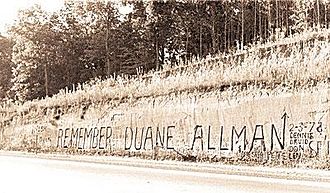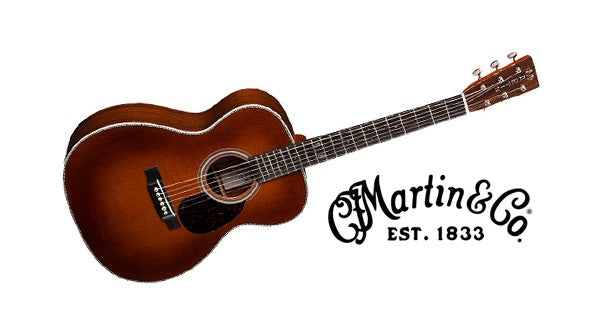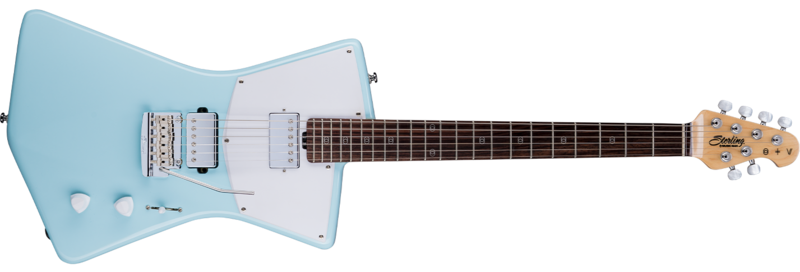Your Cart is Empty
Left Handed Guitarists Who Learned to Play Right Handed
July 13, 2021 8 min read

It can be difficult for a lefty to learn how to play guitar in this predominantly right handed world. Until recently, affordable left handed guitars were difficult to find, and left handed teachers who could clearly demonstrate guitar techniques in a lefty-friendly way were even more difficult to find.
That’s why so many left handed musicians have learned to play guitar right handed. Some players, like Nick Johnston or Mark Knopfler for example, even say that being a lefty has given them an advantage when it comes to dexterity and vibrato. As you can see from this list, many of the most celebrated guitarists in history were southpaws who learned to play righty out to pure necessity!
Duane Allman

Southern rock’s secret southpaw, renowned session guitarist, and founding member of The Allman Brothers, Duane Allman was born in Nashville on November 20, 1946. In 1960, Duane’s brother Gregg saved up enough money to buy his first guitar, a Japanese made Teisco Silvertone, while Duane bought a Harley 165 motorbike and became the terror of the neighborhood tearing up and down the roads. The brothers both took turns playing the guitar, often fighting over it. Duane’s interest in guitar soon became greater than his interest in dirt biking, and when he wrecked the motorbike soon later, Duane traded it for a Silvertone of his own. Eventually, his mother bought him a Gibson Les Paul Junior.
After seeing BB King perform live, Duane was inspired to put a lot of time and effort into his guitar playing, and soon he and his brother Gregg were both good enough to start playing in local bands. In 1967, after a few years of gigging with their band, Duane and Gregg were encouraged to move out to California to get a recording contract but the record company that signed them tried to transform their band into a 60‘s psychedelic pop band and the project ended up not working out.
Soon Duane was signed to a contract by Jim Hall to become the main studio guitarist for Fame Studios where he played on tracks by industry leading musicians like Clarence Carter, King Curtis, Aretha Franklin, Laura Nyro, Wilson Pickett, Otis Rush, Percy Sledge, Johnny Jenkins, Boz Scaggs, Delaney & Bonnie, Doris Duke and jazz flautist Herbie Mann. The result of this work attracts the favorable attention of Eric Clapton and Duane ends up becoming Clapton’s close friend and collaborator.
In March of 1969 Gregg returned to Jacksonville Florida to join with the group of A-list musicians that Duane had assembled there and the Allman Brothers Band was born. The new group jammed for days, so successfully that it is said that Duane exclaimed, "If anybody here isn't in this band, they're gonna have to fight their way out." These jam sessions were more than just the beginning of a great new band. The Allman brothers were combining elements of blues, jazz, rock and country for the first time in recorded history, creating a brand new sound that would be known as Southern Rock and would influence generations of later musicians including future bandmate Dickey Betts (after Allman's death), Rory Gallagher, Derek Trucks, Gary Rossington of Lynyrd Skynyrd, and Joe Walsh of the Eagles.
Duane died tragically in a motorcycle accident at the height of his fame and in his musical prime. His legacy is so enduring that in 2003 Rolling Stone Magazine named him #2 in their list of the 100 Best Guitarists of All Time next to Jimi Hendrix.
Duane’s Solo for Blue Sky, Live at Stonybrook, 1971 (audio only)
Shawn Lane
Born in Memphis Tennessee, March 21, 1963, Shawn Lane had a lifelong love of music and took up piano as a young child of 8. By the time he was 10, he began to play and practice guitar seriously. By the time he was a teenager he was ready for the big time, and at the tender age of 14 became the guitarist for Black Oak Arkansas (BOA). Alongside band members that included drummer Tommy Aldridge, Lane toured over the next four years opening shows for well known bands like REO Speedwagon, Ted Nugent, Cheap Trick, Molly Hatchet and Blue Öyster Cult. In 1978, at the age of 15, Lane saw Allan Holdsworth play with the progressive band UK and became determined to create his own fusion based guitar style.
Before shred hit the mainstream, way back in the late 1970‘s, young southpaw Lane had honed his legendary chops as a righty, becoming, along with guys like Yngwie Malmsteen and Paul Gilbert, one of Mike Varney’s earliest discoveries to be featured in his legendary Spotlight column. The legend of Shawn Lane grew through word of mouth, live performances and bootleg recordings on cassette and VHS tapes. The first time Paul Gilbert heard Shawn Lane’s legendary technical skills he thought he was listening to someone playing the most incredible two-handed riffs and was amazed to discover that Lane was playing these seemingly impossible licks with only his left hand. Gilbert called Lane “The most terrifying guitar player in history.”
In his full musical maturity, through the late 80‘s and 1990‘s, Shawn Lane established himself as a leading fusion player, and was often compared to the great Allan Holdsworth for his incredible technical ability. Sadly, chronic health problems cut Lane’s life short. After a musical legacy that earned him the titles ‘The Great One,' and ‘The Most Terrifying Player on the Planet,' today you can find many of Lane’s legendary live performances on Youtube and his memorial website ShawnLane.com curated by his mother, is definitely well worth a visit.
Shawn Lane - Rice With Angels from 1996
Nick Johnston

Known as much for his ‘atomic’ pastel colored strat-style Schecter Signature guitars as he is for his distinctive blend of SRV-inspired blues and progressive instrumental music, Nick Johnston was born in 1987 in the small town of Rockwood, Ontario, Canada. He says that his childhood was spent largely in solitude, practicing guitar in his bedroom. Inspired by Stevie Ray Vaughn, Eddie Van Halen, Jeff Beck and Yngwie Malmsteen, Johnston was a self taught lefty who didn’t have the money for expensive gear and learned instead to simply ‘make it work’ with whatever gear he had on hand.
Johnston’s breakthrough album, titledRemarkably Human, features his unique brand of blues-inspired progressive instrumental music. An independent solo artist and virtuoso guitarist, Johnston consulted on a line of Schecter Signature Traditional models that are top notch in every way and regularly draws large audiences to his Schecter and Mesa Boogie guitar clinics, highlighting his other passion, which is guitar education. Unlike previous generations of highly skilled guitarists who seems to want to take the secrets of their technical virtuosity to the grave, Johnston gives highly accessible online lessons from his personal website providing monthly access to lessons, tips, tablature and backing tracks.
Nick Johnston - Atomic Mind
Gary Moore

The legendary Gary Moore was one of the most underrated guitarists of all time. Blessed with amazing chops, and the ability to play with tons of feeling and raw emotion, Moore was as much at home in the 70's rock genre as he was playing in Jazz and Blues ensembles with some of Fusion’s most highly respected musicians like Greg Lake of ELP. Born in Belfast, Ireland, April 4, 1952, Moore started playing guitar at the tender age of 8 on a right handed model, teaching himself chords and how to play leads in the style of Eric Clapton and Peter Green of John Mayall and the Bluesbreakers.
Of Peter Green, Moore once said, "It was an amazing experience just to hear a guitarist walk on stage and plug into this amplifier, which I thought was a pile of sh*t, and get this incredible sound....He was absolutely fantastic, everything about him was so graceful." Seeing Clapton play some time later was even more profound:
"The first time I heard Clapton play guitar, it changed my life. I was already learning to play that guitar, but something very profound happened when I heard [Blues Breakers with Eric Clapton].Within two seconds of the opening track, I was blown away. The guitar sound itself was so different. You could hear the blues in it, but prior to that all the guitar you heard in rock, well pop, music had been very staid, very polite. Just listen to the early Beatles and The Shadows to see what I mean. They were great, but Eric Clapton transcended it completely." (Quote from Wikipedia biography.)
Known primarily for his solo work in the 1980‘s and 90‘s, Moore did a short stint with Thin Lizzy in the late 1970‘s and was the original first choice of Ozzy Ozbourne when he left Black Sabbath. However, things didn't work out because, as Moore later said, they were moving in different musical directions. Moore was heading in a blues/jazz oriented direction and would soon begin playing with jazz fusion projects like BBM with Ginger Baker and Jack Bruce and in the backing band for Greg Lake of ELP. Moore died tragically of an apparent heart attack in 2011 having influenced a long list of illustrious guitar players including Vivian Campbell, Doug Aldrich, Zakk Wylde, Kirk Hammett and John Sykes.
Gary Moore at Montreux Jazz Fest in 1990
Benjamin Burnley of Breaking Benjamin

The founding member of the Alternative Metal band Breaking Benjamin, Benjamin Burnley, born in Atlantic City, New Jersey in 1978, taught himself to play guitar in his early teens inspired by lefty guitarist and front man Kurt Cobain of Nirvana. At 21 he moved to Wilkes-Barre, Pennsylvania where he became a roommate of former Breaking Benjamin bass player Jonathan Price. In 1998, along with lead guitar player Aaron Fink, Breaking Benjamin was formed.
The band has undergone several lineup changes over the years, but that hasn’t changed Breaking Benjamin’s trademark sound: Burnley’s powerful vocals and high energy guitar performances. Known for their ‘hooky jams’ and highly emotional lyrics, the Wal Street Journal once described Breaking Benjamin’s music as ‘active rock,’ "...a subgenre that includes bands like Disturbed, Five Finger Death Punch and Three Days Grace, hard rockers who growl and yell, but can be as tender and emotive as Coldplay."
Another extremely cool thing about Burnley is his up-front and refreshing attitude. Look up the number of videos on Youtube where Burnley has stopped shows to break up fights in the crowd and protect young people who attend their shows. Good stuff. Check out this video in which that very thing happens (video does contain profanity):
Breath by Breaking Benjamin
Mark Knopfler of Dire Straits
Mark Knopfler of Dire Straits is one of the best and most influential guitarists in history. Born in Glasgow in 1949, Mark was bitten by the music bug really hard when he was only 6 years old and hears Lonnie Donegan for the first time. In his teens, he stops on the street to stare into the window of a Newcastle guitar shop where he saw a red Fender Stratocaster for the first time. Soon he was able to persuade his father to spend £50 on his first guitar, a red twin pick-up Höfner V2.
In the mid 1960‘s, he started going out and catching gigs at Newcastle Hall, where he saw Chuck Berry and British rock star Joe Brown. On the turn table he was taking in a steady diet of his favorite and most inspirational guitarists like Duane Eddy, Chet Atkins, Django Reinhardt and Lonnie Johnson, and soon he was replicating the licks he heard on their records and started playing in local bands.
Beyond simply replicating licks, Knopfler begins writing songs, many of which will appear on future Dire Straits albums, like ‘Sultans of Swing’ and ‘Summer’s Coming my Way.’ When Knopfler attended college in London, he met kindred musical spirits and formed the nucleus of Dire Straits. In 1977 he left a career in journalism to pursue a career in music, achieving enormous success, especially with the single ‘Money for Nothing’ which became the anthem of the MTV Generation. Over the ensuing decades, Knopfler’s vision never faltered. His unique blend of rock, folk, country and blues has firmly established him as a genius guitarist, singer and writer, as well as a composer whose movie scores for well received films like ‘The Princess Bride’, ‘Wag the Dog’ and ‘Metroland’ have garnered awards and critical acclaim.
Money for Nothing - Dire Straits Live Aid 1985
Leave a comment
Comments will be approved before showing up.
Also in Adirondack Guitar News and Blog
Browse Our Store
Recent Articles
- Left Handed Guitarists Who Learned to Play Right Handed July 13, 2021
- The History and Importance of the Martin 28 Style July 13, 2021
- Adirondack Guitar Profiles: St. Vincent July 13, 2021
- Adirondack Guitar Profiles: John Petrucci May 05, 2021
- How to Turn Your Music Skills into a Career March 30, 2021





